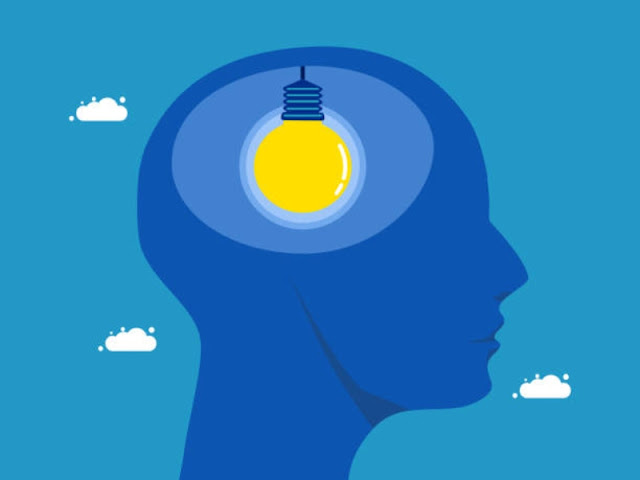Featured
- Get link
- X
- Other Apps
Memory and Problem-Solving Issues

Memory and Problem-Solving Issues: Understanding the Link and Strategies for Improvement
Memory and problem-solving abilities are fundamental
cognitive functions that production a energetic role in our daily lives. From
remembering important information to solving complex problems, these skills
shape our ability to navigate the world effectively. However, many individuals
encounter challenges related to memory and problem-solving, which can
significantly impact their overall well-being and quality of life. In this item,
we will explore the intricate connection between memory and problem-solving and
discuss effective strategies to address these issues.
The Interplay Between Memory and Problem-Solving:
Memory and problem-solving are closely intertwined cognitive
processes. Memory serves as the foundation upon which problem-solving skills
are built. When faced with a problem, individuals often rely on their memory to
access relevant information, past experiences, and learned strategies. Memory allows
us to draw upon our knowledge and experiences to identify patterns, analyze
situations, and devise effective solutions.
1. Working Memory:
Working memory, a system responsible for temporarily holding
and manipulating information, is particularly crucial for problem-solving. It
allows us to keep relevant information in mind while working on a task,
enabling us to analyze problems, make connections, and generate solutions.
Individuals with strong working memory capacity tend to excel in problem-solving
tasks as they can juggle multiple pieces of information simultaneously.
2. Long-Term Memory:
Long-term reminiscence, on the other hand, stores vast quantities
of information over extended periods. It comprises explicit memory (conscious,
intentional recollection) and implicit memory (unconscious, unintentional
recollection). Problem-solving often relies on explicit memory, where
individuals consciously retrieve specific information or past experiences
relevant to the problem at hand. Strong long-term memory enhances the ability
to access relevant information promptly, aiding in effective problem-solving.
Common Challenges:
Despite the essential roles memory and problem-solving play,
various factors can lead to challenges in these areas. Aging, stress, sleep
deprivation, neurological conditions, and mental health issues can impair
memory and problem-solving abilities. Additionally, certain lifestyle factors,
such as poor nutrition and lack of physical activity, can harmfully impact
cognitive functions.
Strategies for Improvement:
1. Mental and Physical Exercise:
Engaging in regular mental exercises, such as puzzles,
brainteasers, and crosswords, can stimulate brain activity and enhance
cognitive functions. Additionally, physical exercise has been linked to
improved memory and problem-solving skills. Exercise promotes the progress of
new brain cells and strengthens the connections between existing ones,
enhancing overall brain function.
2. Healthy Lifestyle Choices:
Adopting a balanced diet rich in antioxidants, omega-3 fatty
acids, and other nutrients supports brain health. Adequate hydration is also
crucial, as dehydration can impair cognitive functions. Avoiding excessive
alcohol consumption and refraining from smoking are lifestyle choices that
positively impact memory and problem-solving abilities.
3. Stress Management and Relaxation Techniques:
Chronic stress can impair memory and problem-solving skills.
Practicing stress-discount techniques such as thought, yoga, deep breathing
exercises, and mindfulness can significantly improve cognitive functions. These
practices promote relaxation, reduce stress hormones, and enhance overall brain
health.
4. Quality Sleep:
Sleep plays a energetic role in memory consolidation, a
process where short-term memories are transformed into long-term ones.
Prioritizing a consistent sleep schedule and creating a conducive sleep
environment can improve the quality and duration of sleep, thereby enhancing
memory and problem-solving abilities.
5. Cognitive Training:
Cognitive training programs designed to target specific
cognitive functions, including memory and problem-solving, have shown promising
results. These programs often involve structured exercises and activities aimed
at improving memory recall, attention, and logical reasoning. Regular
participation in cognitive training can lead to significant enhancements in
cognitive abilities.
6. Social Engagement:
Maintaining social connections and engaging in
intellectually stimulating conversations can keep the brain active and enhance
cognitive functions. Meaningful social interactions provide opportunities to
learn new information, exchange ideas, and engage in problem-solving
discussions, all of which contribute to improved memory and problem-solving
skills.
7. Seeking Professional Support:
In cases where memory and problem-solving issues
significantly impact daily life, seeking professional help is essential.
Neurologists, psychologists, and other healthcare professionals can conduct
assessments, identify underlying causes, and develop tailored interventions to
address specific challenges. Early intervention and appropriate therapies can
often mitigate the impact of cognitive impairments.
Conclusion:
Memory and problem-solving are intricate cognitive processes
that significantly influence our ability to navigate life's challenges. By
understanding the interplay between these functions and adopting effective
strategies, individuals can enhance their memory and problem-solving abilities,
leading to improved overall cognitive function and a better quality of life.
From lifestyle modifications to targeted cognitive training, there are various
approaches available to support and enhance these essential cognitive skills,
empowering individuals to lead fulfilling and intellectually active lives.
- Get link
- X
- Other Apps
Popular Posts
The Power of Smart Clothing in Health Monitoring
- Get link
- X
- Other Apps


Comments
Post a Comment